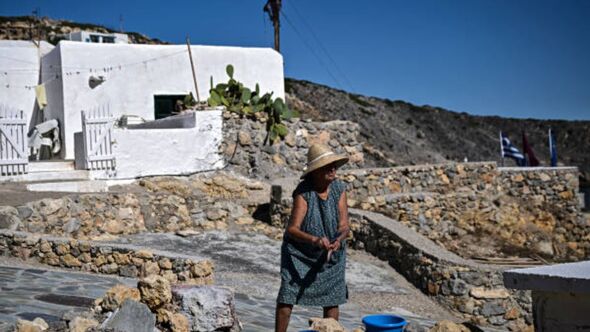A beautiful Greek island is in crisis, with locals saying there’s “no children left”.
During the winter months on the island of Antikythera, the aleady small population is reduced even more.
Local leader Giorgos Harhalakis says: “There are 20 to 25 of us, no children, no bakery.”
But he is working to turn the island’s fortunes around and is “not giving up”.
Located near Crete, Antikythera had just 39 permanent residents in 2021. This was down from 120 in 2011. It, like many rural areas of Greece, has been suffering a slow depopulation.
Harhalakis, 37, told AFP about his childhood in the 1990s, before many of the residents were forced to move to the mainland by “financial problems”.
At that time, he says the small island had around 15 communities, with “farmers, fisherman and cattle breeders”. Now, only one port is inhabited and the hills and fields of Antikythera are littered with abandoned and collapsed houses.
The primary school was forced to close for two decades before reopening in 2018 for just three pupils – the children of Despina and Dionysis Andronikos, who returned from Athens.
It had to shut again just three years later when the family had to move to Kythera for the secondary school. This is a common story across Greece, with schools shutting due to a lack of pupils.
A recent study by the Greek Institute for Demographic Research found that one in three of the country’s municipalities has less than 10 births a year. Women in Greece were having 1.43 children in 2021, below the EU average of 1.53, according to data agency Eurostat.
Athens is home to over a third of the population and over a fifth of people are aged 65 and over. In addition, over half a million young people left Greece during the financial crisis.
The island launched an initiative three years ago to invite families to repopulate the island but it has so far failed to work. Harhalakis said the main problem is “the lack of infrastructure”, urging the state to offer incentives for house and shop construction.
